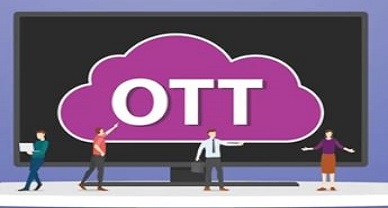Amendments to IT Rules
Introduction
The Ministry of Electronics and Information Technology (MeitY) was designated as the focal ministry for all issues pertaining to the online gaming sector on December 23, 2022. Following this development, MeitY released a draught modification (Proposed Amendment) to the Information Technology (Intermediary Guidelines and Digital Media Ethics Code) Rules 2021 (IT Rules 2021) on January 2, 2023, expanding the scope of the IT Rules 2021 to include intermediaries for online gambling. MeitY has extended a deadline for comments on the proposed amendment of January 17, 2023.
[Image Sources : Shutterstock]
The list of proposed amendments is as follows:
- Definitions: The Proposed Amendment introduces some new definitions in the IT Rules 2021, such as ‘online game’, ‘internet’, ‘deposit’, ‘winnings’ and ‘online gaming intermediary’.
- An “online game” is defined as a game that is accessible by a user through a computer resource and that is offered over the internet if the user makes a deposit or agrees to make a deposit, in cash or in kind, with the expectation of winning a prize, in cash or in kind, that is given or intended to be given to the user based on the user’s performance and the rules of the online game.
- An intermediary that provides one or more online games is referred to as a “online gaming intermediary.”
- Due diligence requirements: Online gaming intermediaries are required to comply with all due diligence requirements applicable to intermediaries in general under IT Rules 2021. Certain additional compliances for online gaming intermediaries are as follows:
- Registration: All online games offered by online gaming intermediaries must display the registration mark and be registered with a self-regulatory body (SRB) in order to be played.
- Informing users of policies: Users must be informed of the following: (i) the online games provided by the online gaming intermediary; (ii) the policy for refunding or withdrawing the user’s deposit; (iii) the policy for distributing winnings; (iv) other fees and charges due from users; (v) the risk of financial loss and associated addiction; (vi) the KYC procedure for user account registrations; (vii) the precautions taken to protect the deposit made by users; and (viii) the framework of the SRB of which the online gaming intermediary is a member.
- Certification: For each online game supplied, online gaming intermediaries will need to obtain and publish the following certificates from a reputable certifying authority: (i) random number generation certificate; and (ii) no bot certificate.
- Verification of user identity: According to Reserve Bank of India guidelines, users’ identities will need to be confirmed when they create user accounts. Users have the option to voluntarily verify their accounts, in which case they will receive a visible and tangible mark of verification.
- Obligations of intermediaries: Certain proposed amendments will apply to all intermediaries:
- Adherence to applicable laws: Intermediaries shall use commercially reasonable efforts to prevent the hosting, sharing, uploading, storing, or modification by users of any information that: (i) is an online game that is not in compliance with applicable laws, including laws relating to gambling or betting or of a legal age; and (ii) violates any law currently in effect.
- Hosting or Advertising: Intermediaries will be required to verify with the relevant online gaming intermediary and the relevant SRB if such online game is registered and show the fact of registration on its website and/or mobile-based application before hosting or advertising such online game for a consideration.
- Power to notify non-deposit accepting games as ‘online games’: If MeitY is convinced that a particular game may be harmful to children or may put at risk India’s sovereignty, integrity, security, friendly relations with other States, or public order, MeitY has reserved the right to declare the game to be a “online game” and bring it within the scope of the amended IT Rules 2021.
- Self-regulatory Bodies. According to the proposed amendment, “self-regulatory bodies,” or SRBs, will need to register with the central government in order to be established for the online gambling business. Each online game that online gaming intermediaries offer must be registered with an SRB, as will the intermediaries themselves.
- Role: A registered SRB’s primary responsibility is to establish a framework to protect the interests of online game players, including appropriate safeguards for protecting, among other things: (A) players from harm; (B) children; (C) players from gaming addiction and financial loss; and (D) players from the possibility of financial fraud.
- Registration of online games with SRBs: After taking into account the following factors in relation to an online game: (i) that it is offered by a member of the SRB; (ii) it does not contain anything against the interest of sovereignty, integrity, defence of India, security of the state, friendly relations with foreign states, or public order; and (iii) it is in compliance with applicable laws, including those laws relating to betting. Registered SRBs may register an online game after considering the foregoing factors in relation to an online game. Each registered online game must be reported by SRBs to the Central Government.
- Membership for online gaming intermediaries with SRBs: Following consideration of the following factors, registered SRBs may grant membership to online gaming intermediaries: (i) compliance with the amended IT Rules 2021’s due diligence requirements; (ii) history of providing online games that uphold India’s sovereignty, integrity, defence, and security as described in Section 69A of the Information Technology Act 2000 (which permits the Central Government to block websites, applications, and other content in the interest of the country); and (iii) history of doing so.
- Grievance Redressal Mechanism: A time-bound grievance redressal procedure must be established by registered SRBs for user complaints that have not been handled by an online gaming intermediary. The Central Government-instituted grievance appellate committee is the final venue for users to appeal.
- Powers of MeitY: MeitY has the authority to suspend the registration of a registered SRB following a hearing over a non-compliance and to notify a registered SRB of such non-compliance along with instructions to correct it.
- Non-Compliance. Online gaming intermediaries will lose their safe harbour protection under the Information Technology Act 2000 if the IT Rules 2021 are violated since online gaming platforms are now subject to the framework that applies to intermediaries. The Information Technology Act, 2000 and the Indian Penal Code, 1860 are just two examples of the laws under which the intermediary could be held accountable for punishment.
Conclusion
By the financial year 2027, it is predicted that India’s online gaming market will have grown by 27% CAGR to $8.6 billion USD. As a result, a strong regulation working toward a more uniform system across gaming platforms is a positive move. The proposed amendment appears to be intended to safeguard the interests of players of online games with potential financial repercussions. It takes a generally light-handed approach and leans heavily toward self-regulation. The Proposed Amendment gives self-regulatory organisations more authority to monitor online gaming intermediaries’ compliance. While the Indian online gaming market as a whole is not new to self-regulation, some of the proposed amendment’s compliance requirements, like the identification and verification process for all users similar to that applied by the Reserve Bank of India to financial entities, seem excessive and could be difficult to implement.
Author: Tanya Saraswat, in case of any queries please contact/write back to us at support@ipandlegalfilings.com or IP & Legal Filing.
References
- Drishti IAS, Amendments to the IT rules, 2021 Drishti IAS (2022), https://www.drishtiias.com/daily-updates/daily-news-analysis/amendments-to-the-it-rules-2021
Soumyarendra Barik, Explained: What are the draft amendments to it rules, 2021? The Indian Express (2022), https://indianexpress.com/article/explained/india-it-rules-2021-amendments-social-media-explained-7958000/


